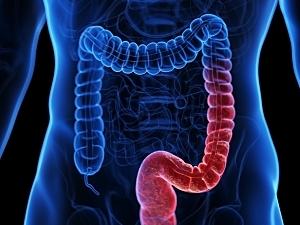Both tofacitinib and ustekinumab are indicated as induction and maintenance therapy for ulcerative colitis (UC). A network meta-analysis of randomized controlled trials, published in Clinical Gastroenterology and Hepatology, ranked the two drugs as equally preferred options for UC after tumor necrosis factor (TNF) inhibitor therapy failed. However, no randomized trial has directly compared tofacitinib with ustekinumab in this setting.
In a retrospective real-world study, Brigham and Women’s Hospital researchers demonstrated that tofacitinib and ustekinumab are equally effective for achieving steroid-free clinical remission of UC at 12 and 52 weeks.
Rahul S. Dalal, MD, MPH, an attending physician in the Division of Gastroenterology, Hepatology and Endoscopy, Jessica R. Allegretti, MD, MPH, medical director of the Crohn’s and Colitis Center, and colleagues report in Inflammatory Bowel Diseases.
Methods
The team examined data on 166 patients who initiated tofacitinib (n=69) or ustekinumab (n=97) between May 1, 2018, and April 1, 2021. They were followed until total colectomy, death, or their last available gastroenterology visit through April 1, 2022. Median follow-up was 88 weeks for the tofacitinib group and 62 weeks for the ustekinumab group.
The primary outcome was steroid-free clinical remission (SFCR) at 12 and 52 (±4) weeks after drug initiation, defined as a Simple Clinical Colitis Activity Index score <2 (or equivalent provider global assessment) with no oral or intravenous corticosteroid use within 30 days before the clinical assessment.
The secondary outcome was time-to-drug survival (time-to-drug discontinuation due to nonresponse over the entire follow-up period).
Unadjusted Results
At 12 weeks, 53% of the tofacitinib group and 32% of the ustekinumab group were in SFCR (P<0.01).
However, at 52 weeks, there were no significant differences between groups in the following:
- SFCR
- Drug survival
- Endoscopic response
- Biochemical response
- Improvement in arthralgia
- UC-related hospitalization
- Colectomy due to refractory disease
Adjusted Results
Since this was a nonrandomized study, propensity score weighting was used to balance the two groups on demographics, UC duration, number of prior TNF inhibitor exposures, prior vedolizumab exposure, current immunomodulator use, current prednisone or methylprednisolone use, disease extent and severity, UC hospitalization within 12 months, albumin and C-reactive protein.
In adjusted analyses, neither tofacitinib nor ustekinumab use was associated with the odds of SFCR at 12 or 52 weeks. Kaplan-Meier analysis demonstrated no difference between groups in drug discontinuation due to nonresponse.
Results were similar after excluding patients with prior tofacitinib or ustekinumab exposure and, separately, after excluding patients who concomitantly used an immunomodulator.
A Common Challenge
Another recent real-world study, published in Digestive Diseases and Sciences, demonstrated >50% of biologic-naïve patients with UC fail TNF inhibitor therapy. As the diversity of options for treating UC continues to grow, additional head-to-head comparisons in both real-world and clinical trial settings will be necessary to inform treatment sequencing.
